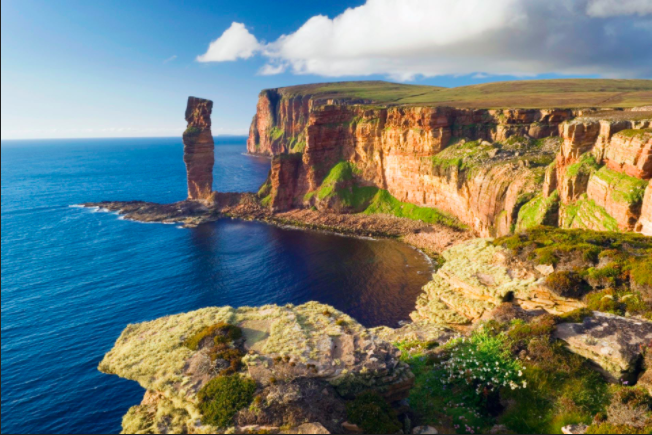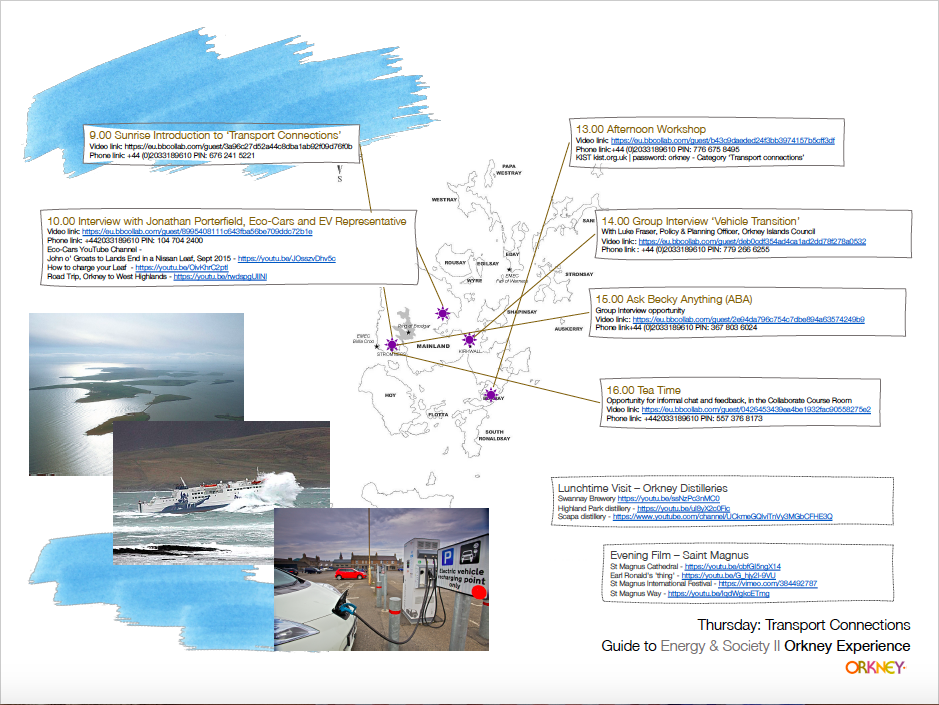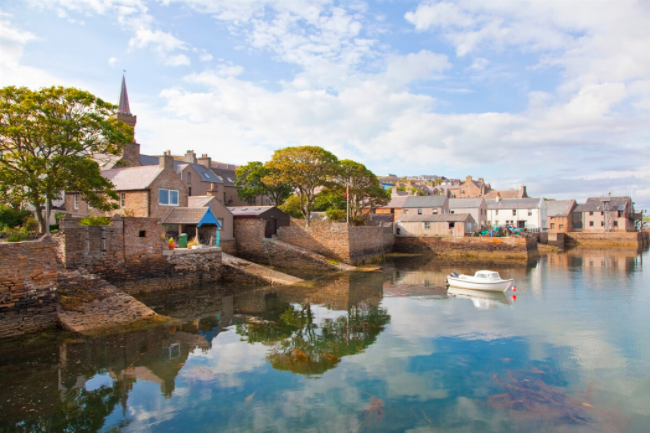My virtual field trip – the Orkney experience

By Emma, MSc Energy, Society and Sustainability
Being a masters student about to go on a field trip in a matter of weeks changed when COVID-19 became a pandemic. Not only were the remaining weeks of classes moved online, but so was my programme’s field trip. Knowing that one of my core courses was basically built on the experiences and education we’d have on our field trip, I wondered how we’d be able to manage learning just as much without actually going on the field trip physically.

(Photo from visitscotland.org)
In the second week of April, my programme (Energy, Society and Sustainability) was to visit the Orkney Islands for a week. These islands are known as the “energy islands”, with a lot of renewable energy projects and with the oldest and largest centre for marine energy — the European Marine Energy Centre (EMEC) — being located there. The Orkney Islands are located in the Northeast of Scotland, with a population just over 22,000 people. The islands produce large amounts of renewable energy, mainly from wind, and have a great potential for more. EMEC is located in Orkney, developing new technologies and innovation for wave and tide energy. We were expecting to learn about renewable energy strategies, the communities, how renewable energy is integrated into their lives and society, and so forth. We were to meet several people working at EMEC and other individuals living on the islands (an Orcadian storyteller, a second-hand electric car dealer, and other people working with projects such as community wind turbines, hydrogen as electricity storage, to name a few). Our class was divided into different groups, all with different research questions to be explored once on the islands.
Sadly, we could not experience Orkney this year in real life, but we did virtually. Thanks to our professor, Dr Laura Watts, we were able to go ahead with our field trip, but with it being online. Dr Watts lives on the islands and could therefore more easily connect us with different people and be our “guide” for the week. For five days, we got to learn from Dr Watts and with the help of an Orkney islander during our daily sessions, and also got to interview individuals in Orkney – both as a group and a class. To make it feel like we were there in Orkney, Dr Watts made a map each day to show our class where we’d be for each online session, including pictures of some sites, links to our collaborate sessions online, and links to videos about Orkney which we could watch in our spare time.

Each day had a theme (island infrastructures, community energy, energy history, transport connections, and sea futures) to guide us through the week. The typical day was set up with a “sunrise session” at 9.00 am to discuss the plan and schedule for the day, followed by an hour talk starting at 10.00 am with an Orkney islander (working at EMEC, working with an island Hydrogen project, etc) where each group could ask a question to the interviewee to gain more knowledge for their research. We would then have a lunch break, where we could watch videos about Orkney or work with our groups. At 1.00 pm our we would begin again with the Afternoon Workshop session, where we’d learn about different research techniques and what ethnographic research entails. This session was followed by one or two group interview sessions with an Orkney islander, with the day wrapping up at 4.00 pm with an Afternoon Tea Time session, discussing the day and any specific questions or thoughts we had.
It was definitely an intense and fully scheduled week with lots to learn, lots of people to “meet” and group meetings to be held – but it was all fully worth it and was definitely the best solution to an unprecedented situation. Hopefully this way of teaching can become more available to students who cannot participate in the field trip for some reason, and need to do it remotely. Although it would have been preferred to be in Orkney physically, this solution couldn’t have gotten us any “closer” to gaining knowledge about the islands and its renewable energy sector, as well as work together as a team to do some interesting research. After the field trip was over, I must confess I quite missed having our daily 9.00 am sessions, tea in hand chatting to my classmates and professor while learning about really cool developments and innovations in the renewable energy sector, and getting a glimpse of what the energy future can look like.

Stromness, the second largest town on the Orkney Mainland – Photo taken from visitscotland.com
Thank you to Dr Watts for setting up our Orkney experience on such short notice and making it such a success, and thank you to all Orkney Islanders who participated virtually and contributed to its success. I hope to come visit soon in real life!
Follow us on Instagram or Twitter for more updates from our Geosciences students!



